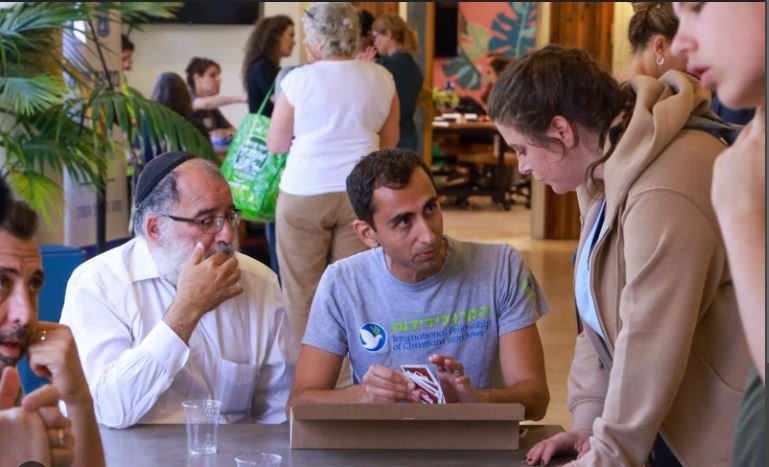Blockchain technology in Jewish charitable organizations is transforming how donations are managed, tracked, and utilized. This technology provides transparency, security, and efficiency, ensuring that contributions are used effectively and donors can trust the process. By leveraging blockchain, Jewish charities can enhance their operations and build stronger relationships with their supporters.

Enhancing Transparency in Donations
Blockchain technology offers unparalleled transparency in donation management. Every transaction is recorded on a public ledger, allowing donors to see exactly how their contributions are being used. This transparency builds trust, as donors can verify that their funds are going to the intended recipients and projects.
Ensuring Security and Trust
Security is a major concern for charitable organizations. Blockchain provides a secure platform for managing donations, reducing the risk of fraud and ensuring that funds are protected. Each transaction is encrypted and immutable, meaning it cannot be altered once recorded. This ensures that donations are handled with the highest level of integrity.
Reducing Administrative Costs
Administrative costs can consume a significant portion of charitable funds. Blockchain technology automates many administrative tasks, reducing the need for intermediaries and cutting costs. This means that more of the donated money goes directly to the causes and people who need it most.
Facilitating Cross-Border Donations
Jewish charitable organizations often operate internationally, making cross-border donations a necessity. Blockchain simplifies this process by eliminating the need for currency conversion and reducing transaction fees. This allows for quicker and more cost-effective international donations, ensuring that help reaches those in need faster.
Improving Donor Engagement
Blockchain technology can improve donor engagement by providing real-time updates on how donations are being used. Donors can track their contributions and see the impact they are making. This continuous engagement can increase donor loyalty and encourage repeat donations.
Implementing Smart Contracts
Smart contracts on the blockchain automate the distribution of funds based on predefined criteria. For example, funds can be released automatically when certain milestones are met, ensuring that donations are used as intended. This automation reduces the administrative burden and ensures that projects are completed on time and within budget.
Ensuring Ethical Use of Funds
Jewish charitable organizations are committed to ethical use of funds. Blockchain’s transparency and accountability ensure that all transactions are ethical and meet the organization’s standards. This enhances the organization’s reputation and ensures that funds are used in alignment with Jewish values.
Enhancing Audit and Compliance
Blockchain technology simplifies the audit process by providing a clear and immutable record of all transactions. This makes it easier to comply with regulatory requirements and conduct thorough audits. Auditors can quickly verify transactions, ensuring that funds are managed properly and legally.
Streamlining Fund Distribution
Blockchain technology streamlines the distribution of funds by automating payments to beneficiaries. This reduces delays and ensures that funds are distributed quickly and accurately. Beneficiaries receive the support they need without unnecessary waiting periods.
Encouraging Innovative Fundraising
Blockchain opens up new possibilities for fundraising through innovative methods like tokenization and crowdfunding. Jewish charitable organizations can issue tokens representing a stake in a project, allowing donors to invest directly in specific initiatives. This not only raises funds but also engages the community in a meaningful way.
Building Global Networks
Blockchain technology helps build global networks of donors and partners. By connecting Jewish charitable organizations with supporters around the world, blockchain fosters a sense of global community and collaboration. This network can be leveraged to address global challenges and provide support where it is needed most.
Promoting Sustainable Development
Blockchain’s ability to track and manage resources efficiently promotes sustainable development. Jewish charitable organizations can use blockchain to ensure that their projects are sustainable and have a lasting impact. This technology supports long-term planning and resource management, aligning with Jewish principles of sustainability and stewardship.
Enhancing Grant Management
Blockchain simplifies grant management by providing a transparent and efficient platform for tracking grants. Organizations can monitor the progress of grant-funded projects and ensure that funds are used appropriately. This transparency enhances accountability and ensures that grant recipients meet their obligations.
Conclusion
Blockchain technology is revolutionizing Jewish charitable organizations by enhancing transparency, security, and efficiency in donation management. By leveraging this technology, organizations can build trust with donors, reduce administrative costs, and ensure ethical use of funds. Blockchain also facilitates cross-border donations, improves donor engagement, and supports innovative fundraising methods. As Jewish charitable organizations continue to embrace blockchain, they can enhance their impact and build stronger, more resilient communities.




